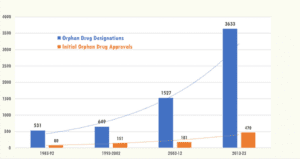One big threat to your business clients’ supply chains

More, and longer-lasting global conflicts are wreaking havoc on your business clients’ supply chains, a new Marsh report finds.
It’s required businesses to find better ways to mitigate or transfer specific risks before they develop into something of concern, according to Marsh Specialty’s 2024 Political Risk Report.
The risk of geopolitical conflict has increased since the pandemic, in part due to fewer consequences for waging wars enforced by intergovernmental or security organizations, Marsh explains.
“Many governments and other actors around the world are no longer deterred by the perceived consequences that may have once discouraged military action — for example, the Syrian government’s actions across the country, Russia’s war in Ukraine, and attacks on shipping in the Red Sea by Houthis,” the report reads.
In fact, the number of conflicts worldwide has doubled since 2005, and conflicts are lasting 50% longer on average since 2000.
As a result, markets are seeing heightened exposure to political violence and business disruption.
For example, Yemen’s Houthi attacks have forced ships to take longer voyages. The number of ships sailing around the southern part of Africa is up 85% from December, according to BNN Bloomberg.
Also, political turmoil within territorial borders creates the seeds of business disruption, as the Marsh reports observes.
For example, although not contained in the Marsh report, Democrats and Republicans have been locked in an almost debilitating debate about an isolationist or interventionist approach to various global conflicts. A similar ideological battle is going over the merits or demerits of globalism or protectionism on the U.S. economy. The outcome of these fractious political debates will significantly shape the direction of ongoing business disruptions across the world.
In more than 60 countries, the Marsh report says, upward of 40% of global voters are headed to their respective polls in 2024. This can cause, among other things, pre- and post-election paralysis, since decisions can take longer to trickle through the system when parties are swapped, according to Marsh.
All of this is converging to create unstable conditions, and businesses should look for ways to ease their worry.
“Navigating political and security risks has long been one of the most complex and ill-defined tasks that organizations must manage,” Marsh writes.
But the businesses that can understand, manage and transfer the risks inherent to times of uncertainty will find themselves better positioned for growth, even during times of disruption.
Organizations looking to identify their chief business risks should ensure they’ve considered the knock-on disruptions that could occur in certain geographies of sectors that they operate. Organizations should also focus on data, which mitigates the easy spread of disinformation during times of disruption.
Either due to war, regulatory, or trade protection concerns, many businesses have been seeking ways to “regionalize” or re-shore their supply chains to areas they consider safer. But in doing so, supply chains have been distorted from what they once were, creating supply chain uncertainty and even bringing some businesses unintendedly closer to unfamiliar governments or regulations.
“The era of globalization and commerce-oriented policymaking by governments has been sidelined by increasing regionalization, export controls, and a growing number of barriers to trade and finance,” the report reads. “As governments continue to intervene, businesses must consider how local actions, global policy decisions, and over-the-horizon risks can affect their operations and the overall business environment.”
Feature image by iStock.com/bfk92



